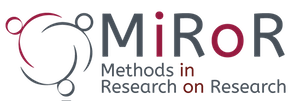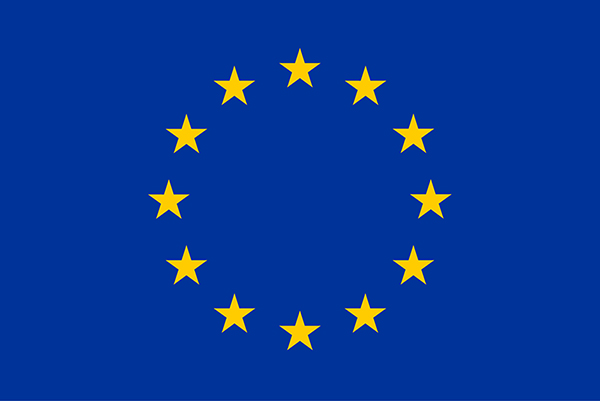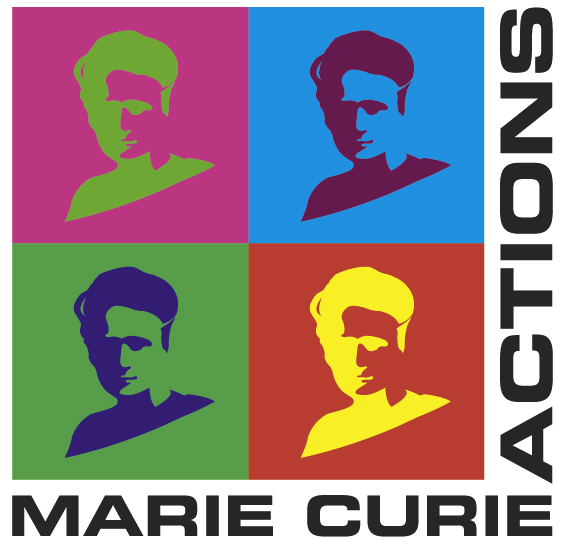Empowering healthcare users by listening to their opinions
Empowering healthcare users by listening to their opinions
19 June 2017 Comments Off on Empowering healthcare users by listening to their opinionsby Alice Biggane, MiRoR PhD Fellow at the University of Liverpool
Doctors know about the illness, but patients know about the impact
Healthcare is a multi-faceted area. It does not exist for any one individual group, it exists for us all, as a collective. Sooner or later most of us will depend on it. Many of us are dedicated to its continued improvement and progression via our chosen career paths, from healthcare providers, to clinical trialists, to academics and many more besides.
We may all come to it for very different reasons but at the end of day our priorities are very similar; to provide and receive the best possible care available in any given situation. We all have a vested interest in it and we all want it to succeed, for ourselves and for each other. So should we not all have an equal voice in its continual development?
The healthcare professionals who provide the front-line treatment know about the illness, as do the academics and clinical trialists who research it, their knowledge and skill are wanted and needed, without it we are lost. However, they are not the only group with opinions of value when it comes to progressing medical research. Patients and members of the public can often offer a completely different perspective and introduce us to the different realities of living with the condition or illness, they understand the impact it has on daily life.
Evidence shows us that through a combination of all these voices and opinions healthcare research can be progressed into something valuable and useful, thus reducing waste in research.
Improving research: Let’s do it together!
 The MiRoR (Methods in Research on Research) consortium is one particular group concerned with this work. MiRoR is an innovative and ambitious joint doctoral training programme in the field of clinical research, funded by the EU’s Horizon 2020 research and innovation programme under the Marie Skłodowska-Curie grant agreement No 676207.
The MiRoR (Methods in Research on Research) consortium is one particular group concerned with this work. MiRoR is an innovative and ambitious joint doctoral training programme in the field of clinical research, funded by the EU’s Horizon 2020 research and innovation programme under the Marie Skłodowska-Curie grant agreement No 676207.
Its primary purpose is to train 15 early stage researchers (ESRs) in the emerging new scientific discipline of Research on Research that aims to identify and minimise persistent threats to medical research quality.
It is a worthy endeavour and something that really needs our attention. Every year, tens of billions of Euros are wasted (hard-earned tax payer money!) on studies that are redundant, flawed in their design, never published or poorly reported.(1,2,3) Worse than that, thanks to current research practices many research claims are more likely to be false than true.
The main victim of all this waste?
Us. All of us. Together. We are all members of the public.
We all suffer as a result of poor clinical research because clinicians are prevented from using effective health interventions in practice and researchers cannot adequately prioritise future research questions. This situation ultimately has a detrimental impact on healthcare users.
MiRoR hopes to try and tackle that problem head-on by training the 15 ESRs to think and develop creative solutions to transform clinical research practice and increase its value. It is providing the opportunity to learn from numerous international experts in the field of clinical research. While exposing the ESRs to the merits of patient involvement, reporting guidelines, spin, clinical trial recruitment and much more. It is a varied and diverse consortium, brought together by our common concerns regarding waste in research and our desire to improve it together.
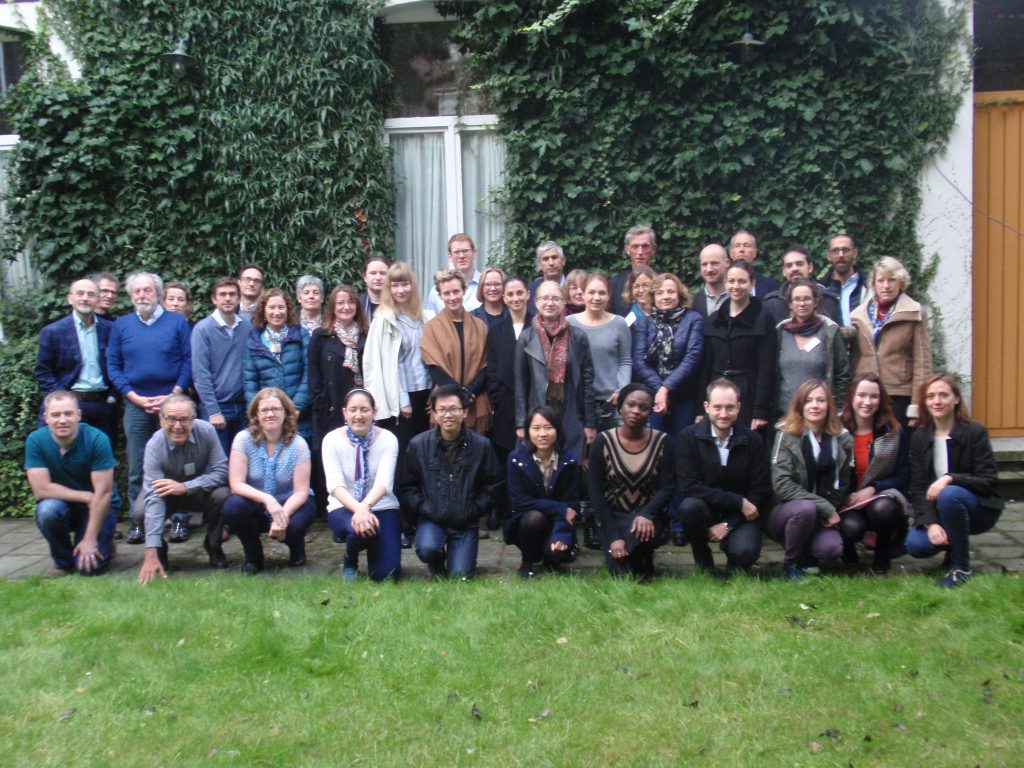
The MiRoR consortium at the first network meeting in Ghent (Belgium), October 2016
The COMET Initiative
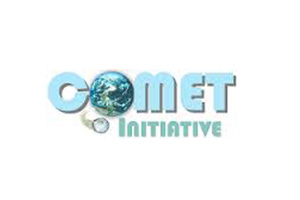 MiRoR have placed me, one of their ESRs at the University of Liverpool. I work in collaboration with the COMET (Core Outcomes Measures in Effectiveness Trials) Initiative, an international initiative that has also received EU funding via the European Commission; award FP7-HEALTH-2012-INNOVATION-1.
MiRoR have placed me, one of their ESRs at the University of Liverpool. I work in collaboration with the COMET (Core Outcomes Measures in Effectiveness Trials) Initiative, an international initiative that has also received EU funding via the European Commission; award FP7-HEALTH-2012-INNOVATION-1.
COMET recognises that to help patients, doctors and other health professionals make decisions about treatments, we need evidence about what works best. Treatments are developed and tested by researchers to make sure they work and are safe. To do this researchers need to look at the effects those treatments have on patients. Researchers do this by measuring an ‘outcome’. For example, in a study of how well a new asthma treatment works, ‘outcomes’ might include:
- A measure of how fast you can blow air out of your lungs
- Night time wheeze
- Asthma quality of life measure
However, at the moment different studies looking at treatments for the same condition often measure different outcomes. This can be problematic when it comes to comparing and contrasting different studies of the same condition, which in turn impacts the amount of evidence available to help doctors and patients make decisions about healthcare and treatment plans. Therefore, COMET brings together researchers interested in the development and application of agreed standardised sets of outcomes, known as ‘core outcome sets’ (COS), which should be measured as minimum in any given study of a particular condition.
COS have the potential to reduce waste in research, rendering the research more useful in contributing to advancing the field, while empowering patients with valid and credible knowledge regarding interventions.
Furthermore, COMET and the people who develop COS, recognise that for their sets to be useful, they need input from all relevant stakeholders, including patients and the public.
The problem: How to facilitate participation?

Researchers and patients identifying challenges and potential solutions in patient and public participation in COS development, at the COMET VI meeting in Amsterdam, November 2016
There are numerous challenges in enabling patient and public participation in a COS study and these will depend on the group. You can’t expect a one size fits all solution with such a diverse and varied group of individuals. Challenges such as selecting the best recruitment method, finding the right language to explain COS studies, using the best method to elicit perspectives of patients and the public, maintaining participant input over time and enabling the inclusion of patients in face to face meetings with health professionals, can all impact the development of a COS.
The collaborative solution: a merger of minds and hope!

The recruitment advert to be used in inviting patients and members of the public to share their experiences with us
That is where MiRoR and COMET have come together, by tasking me to discover the best methods for including patients and the public in the development of these COS.
We want to understand and learn more about the best methods of participation. To do that we will practise what we preach and ask the relevant individuals for their opinions.
We will go to those directly involved in the development of these COS, particularly to the patients and the public and we’ll ask them, for their thoughts and opinions. “How do you feel about the methods being used?” “Did you feel you had the opportunity to contribute in a manner meaningful to you?” “How can we improve?”
Ultimately, my aim is to provide guidance on the use of these methods. Hopefully it will be implemented not only in the UK and Europe, but globally, as healthcare is a global issue that affects us all, indiscriminately.
Will it be worth our while?
Absolutely!
We are all members of the public and as such it is our responsibility to ensure that our resources are used in the most fruitful and progressive fashion possible, in this instance it is by the better collaboration and integration of multiple stakeholder groups.
References:
- Chalmers I, Bracken MB, Djulbegovic B, Garattini S, Grant J, Gülmezoglu AM, et al. How to increase value and reduce waste when research priorities are set. The Lancet. 2014;383(9912):156-65.
- Chalmers I, Glasziou P. Avoidable waste in the production and reporting of research evidence. Obstetrics & Gynecology. 2009;114(6):1341-5.
- Macleod MR, Michie S, Roberts I, Dirnagl U, Chalmers I, Ioannidis JP, et al. Biomedical research: increasing value, reducing waste. The Lancet. 2014;383(9912):101-4.

